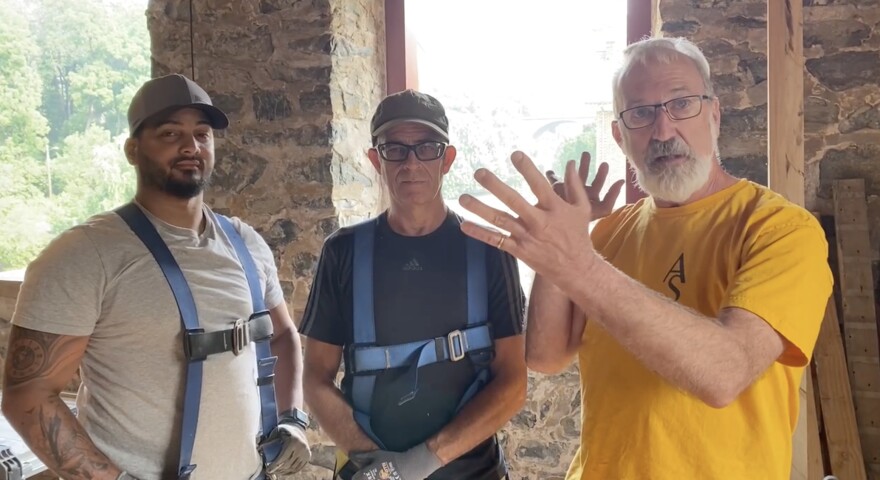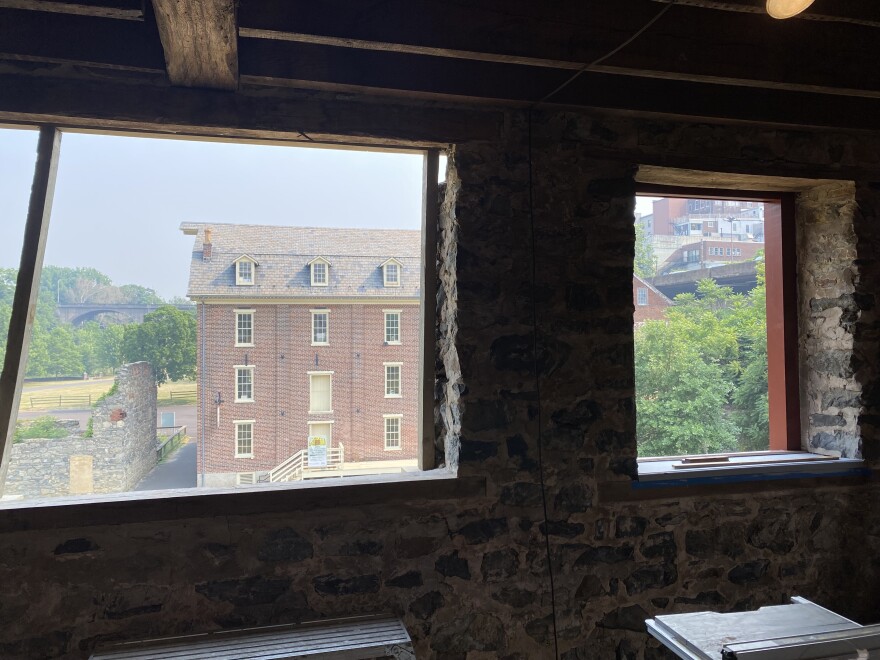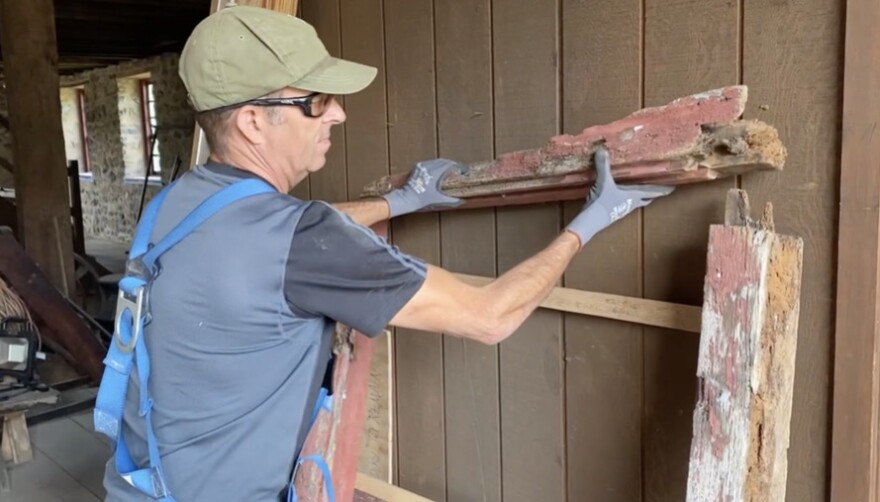BETHLEHEM, Pa. — Just weeks after news of updates to come for the historic Grist Miller’s House in Bethlehem’s Colonial Industrial Quarter, officials say the neighboring 1761 Tannery is also undergoing restorations.
Phase One of the work is slated for completion in the next few weeks, according to a news release from Historic Bethlehem Museums & Sites.
- The 1761 Tannery is currently undergoing renovations
- Some fixes include repairing third-floor windows and doors
- A local team is leading the project
It will include work on the building’s third-floor windows and other features, such as the barn doors, the building’s dormers and barge boards on the roof’s gable ends.

The work involved
A team of craftsmen has tended to the historic site over recent weeks — a group that’s also completed work at other Colonial Industrial Quarter sites, various Historic Bethlehem locations and the George Taylor House in Catasauqua.
“It’s our plan to pay attention to the species of wood used and to be faithful to the original domestic materials. At the same time, we’re giving preference to rot-resistant white oak and black locust hardwoods for the future.”Mark Southard, owner of Artisanal Structures LLC
“It’s our plan to pay attention to the species of wood used and to be faithful to the original domestic materials,” said Mark Southard of Bethlehem, a former anthropologist and owner of Artisanal Structures LLC, the company heading the work.
“At the same time, we’re giving preference to rot-resistant white oak and black locust hardwoods for the future.”

Plexiglass panels are being used in place of the authentic third-story windows for the time being, as the windows are being completed. Soon they’ll be redone with period-appropriate frames, panels and sashes, the release stated.
Phase Two of the project will place attention on first-floor doors, with the crew rebuilding the herringbone-patterned doors.
As the world looks on
With UNESCO World Heritage evaluations to come for the Moravian sites this year, restoration projects have sped up recently, according to HBMS.
“The incredible buildings that surround Historic Bethlehem Museums & Sites are a tangible link to our past. These special structures tell stories that visitors experience as they walk by or enter.”LoriAnn Wukitsch, president of Historic Bethlehem Museums & Sites
HBMS President LoriAnn Wukitsch said locations such as the industrial quarter help to “keep community memories alive.”
“The incredible buildings that surround Historic Bethlehem Museums & Sites are a tangible link to our past,” Wukitsch said. “These special structures tell stories that visitors experience as they walk by or enter.”

Tale of the Tannery
It’s been more than 260 years since the Moravians built the Tannery as a way of processing leather. It sat neighboring a butchery.
Those working in the building produced about 3,000 hides per year, using vats to soak the material in a mix of tanbark and water. The materials helped locals in making their clothes, shoes, harnesses and more.
The Moravian Church sold the business in 1830, though the site still was used for tanning until 1873, when the property was converted for use as a multi-family residence.
From 1968-71, the building saw renovations that took it back to its authentic state, as the Historic Bethlehem collection has preserved a detailed report of the building’s past, alongside the vats and Tannery tools, according to HBMS.


